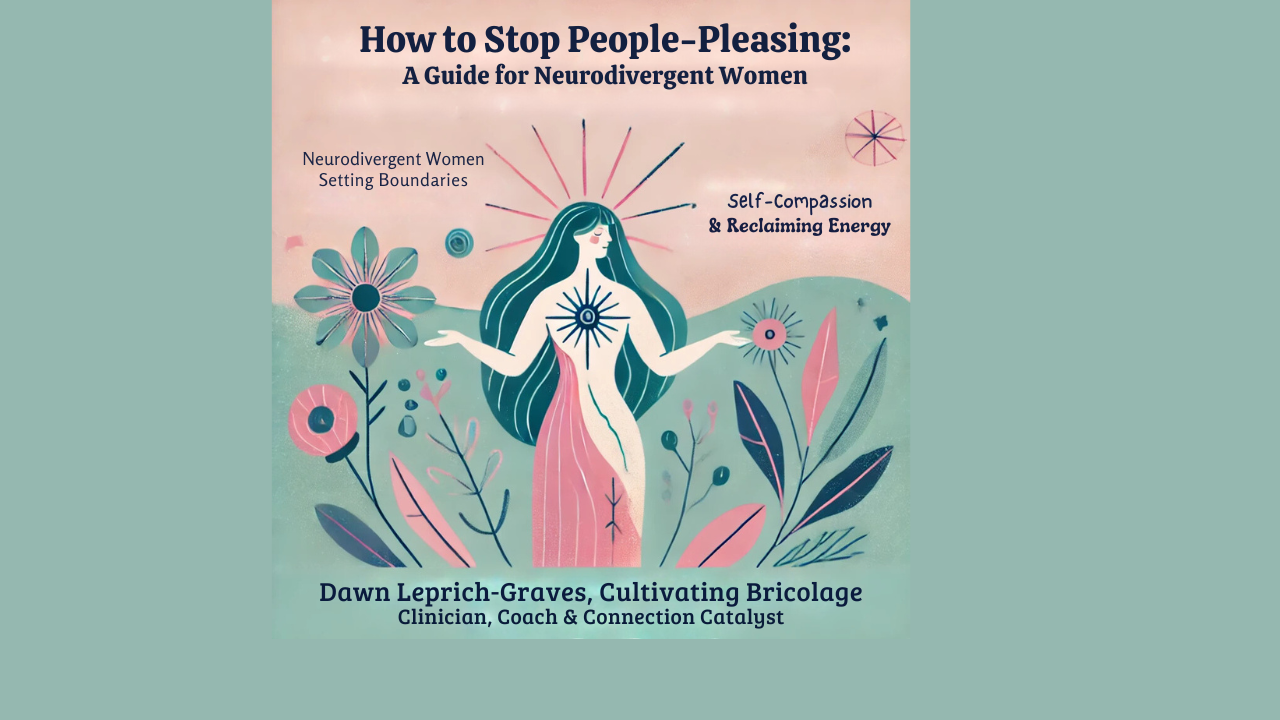How to Stop People-Pleasing: A Guide for Neurodivergent Women
Feb 09, 2025
People-Pleasing Isn’t Helping Anyone
Do you find yourself saying yes when you really want to say no? Or going out of your way to make others happy, even at the expense of your own needs? If so, you’re not alone. For neurodivergent women, people-pleasing can feel like second nature—an ingrained habit born from masking, hyper-empathy, and a fear of conflict.
But here’s the truth: Constant people-pleasing doesn’t lead to deeper connections or peace— it leads to exhaustion.
Let’s talk about how to break the cycle, set boundaries, and show up authentically.
Why Neurodivergent Women Fall Into the People-Pleasing Trap
People-pleasing often stems from deeper struggles:
- Masking: Hiding your true self to avoid rejection or judgment.
- Hyper-Empathy: Prioritizing others’ emotions while ignoring your own.
- Conflict Avoidance: Saying yes to keep the peace, even if it feels wrong.
These habits may have helped you navigate social situations in the past, but they’re no longer serving you.
The Cost of People-Pleasing
When you prioritize others over yourself, you’re not just giving away your time—you’re sacrificing your:
- Energy: Overcommitting drains you physically and emotionally.
- Authenticity: You can’t be yourself if you’re always trying to please others.
- Happiness: Resentment builds when your needs are constantly pushed aside.
Breaking the Cycle of People-Pleasing
1. Recognize the Signs
People-pleasing often hides in small, automatic behaviors.
- Saying yes out of guilt or obligation.
- Over-apologizing or taking responsibility for others’ feelings.
- Downplaying your own needs to “keep the peace.”
2. Pause Before Responding
When someone asks for your time or energy, take a moment before answering.
- Practice saying, “Let me think about it.”
- Use this time to evaluate whether the request aligns with your values and energy.
3. Set Boundaries with Confidence
Boundaries aren’t mean—they’re necessary.
- Use clear, respectful language like, “I’m unable to do that, but I appreciate you asking.”
- Remember: No is a complete sentence.
Reframing Boundaries as Connection
Contrary to what you might believe, setting boundaries strengthens relationships. When you’re clear about your needs, others know where they stand—and the people who truly care about you will respect your limits.
Self-Compassion: The Antidote to People-Pleasing
Breaking the people-pleasing cycle isn’t easy, but it starts with treating yourself with the same kindness you show others.
Practice this mantra:
“My needs are valid. Saying no makes space for what truly matters to me.”
Small Steps Toward Authenticity
Every time you prioritize your needs, you’re reclaiming your energy and authenticity. Celebrate the small wins, like saying no once this week or asserting a boundary with a loved one.
Ready to Put Yourself First? Let’s Work Together.
If people-pleasing feels like a habit you can’t break, my coaching program for neurodivergent women is here to help. Together, we’ll create strategies to honor your needs, set boundaries, and show up authentically in every area of your life.
Let’s prioritize you.
– Dawn Leprich-Graves, LCPC, LPC, PMH-C, ASDCS Clinician, Coach & Connection Catalyst

